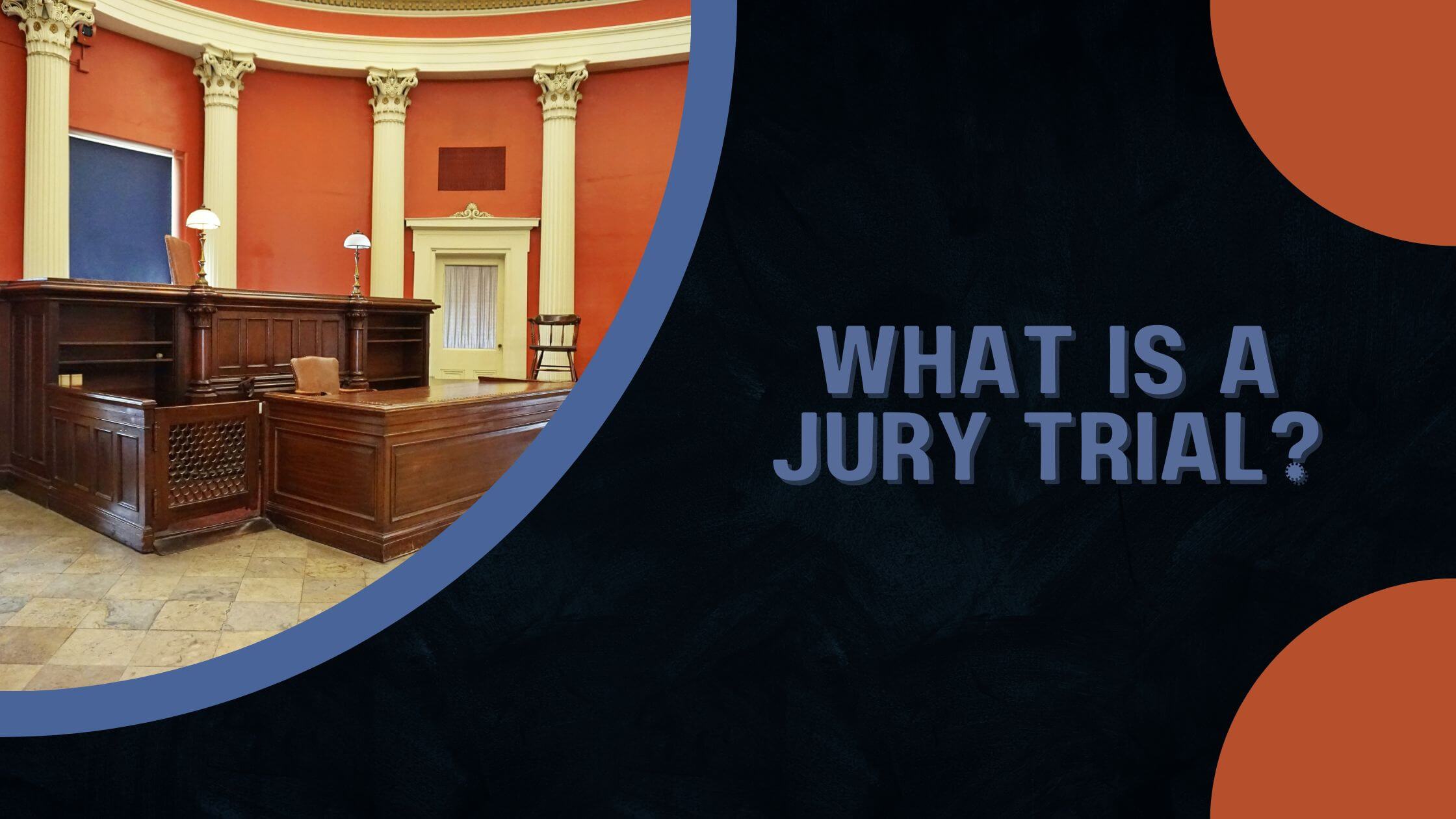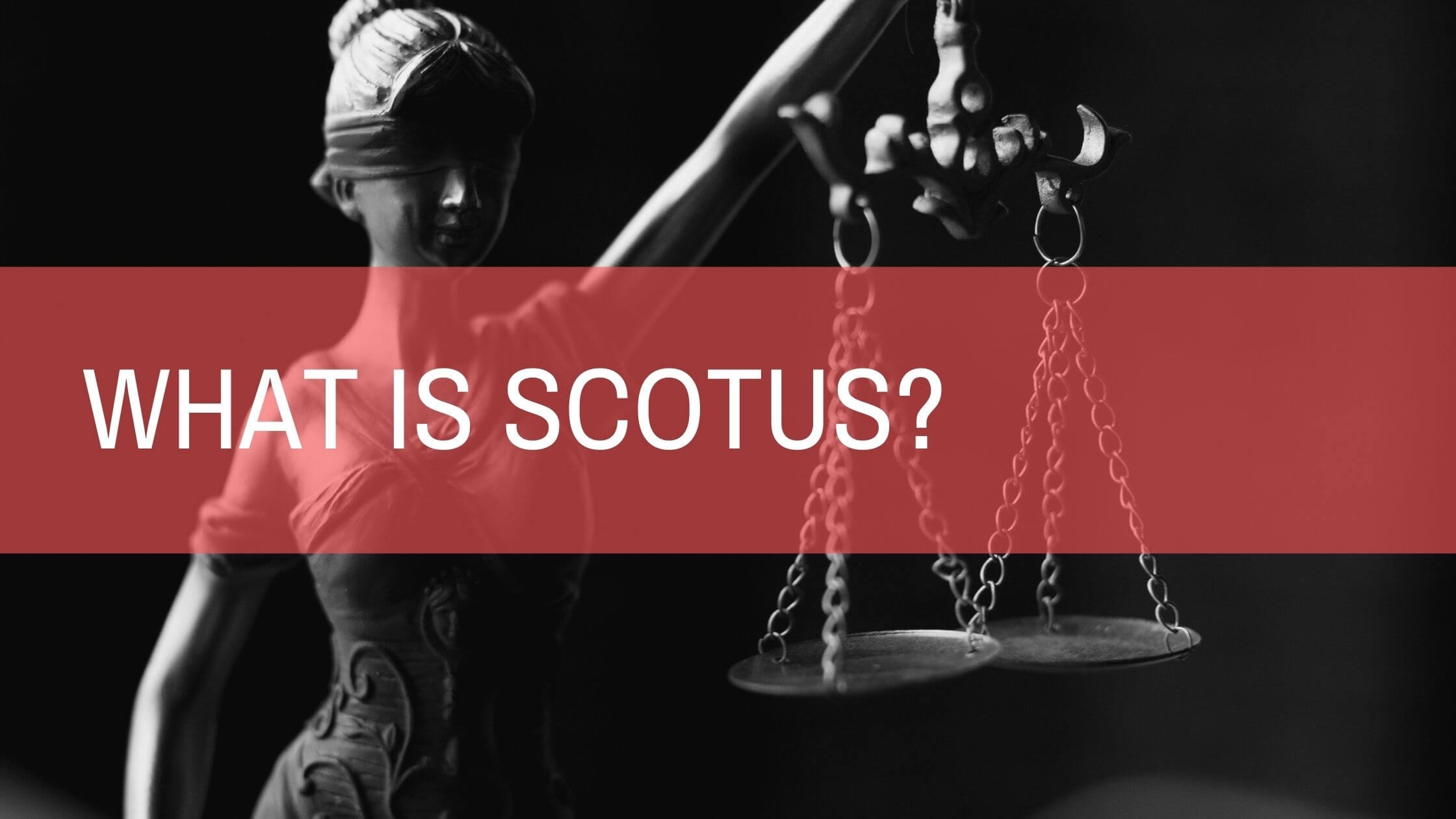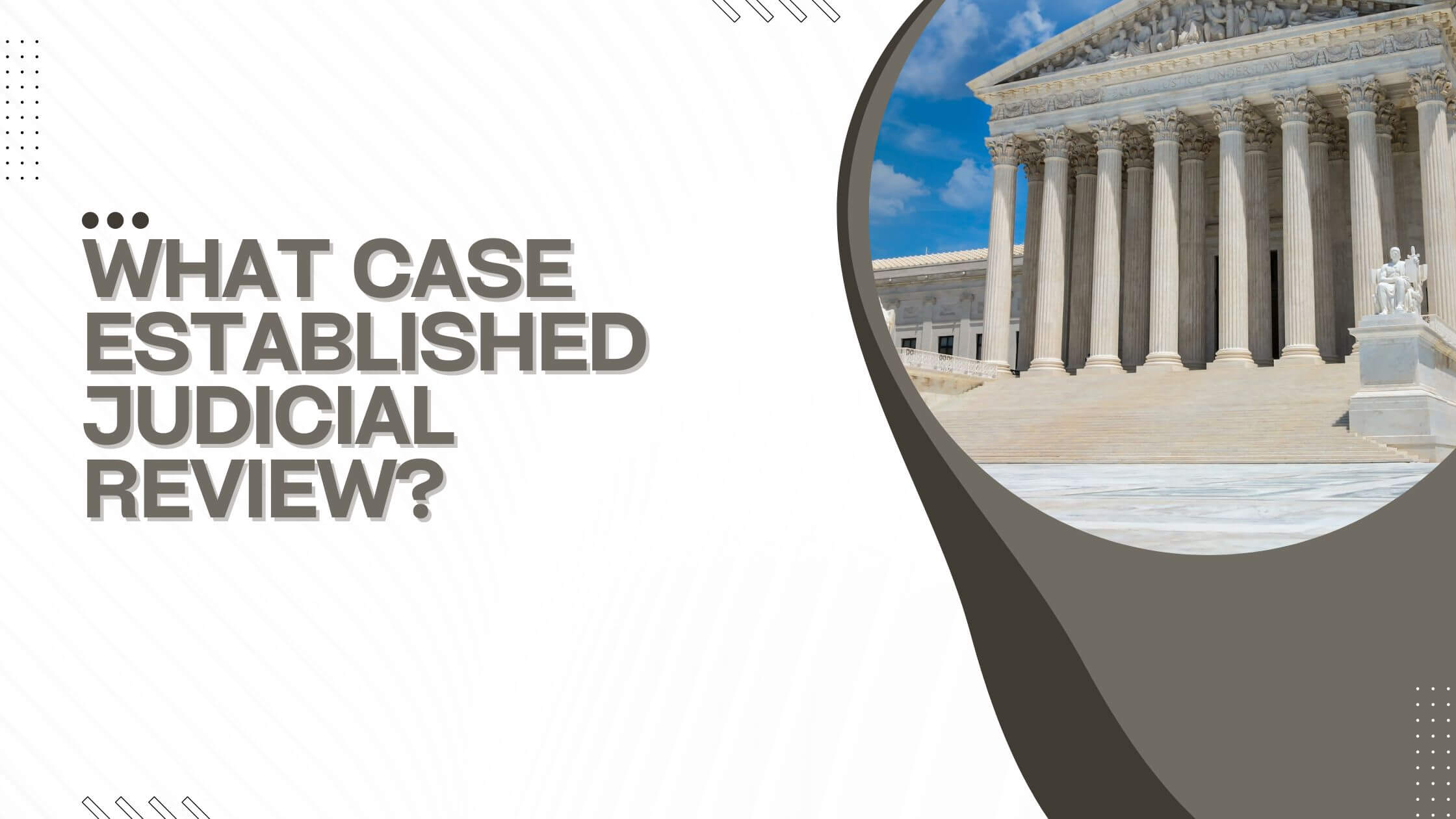Table of Contents
ToggleYou’ve watched the news, read about it online, or heard your friends talk about it, jury duty. But what exactly is a jury trial? The truth is that it’s not just one thing.
A jury trial can be many different things depending on the situation and charges being laid against someone. Let’s go over some basic information about jury trials and what they are.
What is a jury trial?
A jury trial is a trial in which the verdict is decided by a jury rather than by a judge. It is a legal proceeding where both sides of an issue (or controversy) present evidence to a group of people who will decide the case. These people are called “jurors” or “the jury.”
The jurors listen carefully to all the evidence presented by both sides and then decide if someone is guilty or not guilty of whatever crime they’re being charged with.

Get Smarter on US News, History, and the Constitution
Join the thousands of fellow patriots who rely on our 5-minute newsletter to stay informed on the key events and trends that shaped our nation's past and continue to shape its present.
In general:
- A jury trial is a fair way to determine guilt or innocence.
- Juries are an important part of the American legal system.
- Jury trials protect the rights of the accused.
- Juries help ensure that justice is served.
- Jury trials are an important check on government power.
Let Your Voice Be Heard
It’s your right to be heard. It’s your right to be heard by a jury of your peers in a court of law.
In America, it is the only trial system where the accused (or plaintiff) gets the chance to make their case directly before those who will decide their fate.
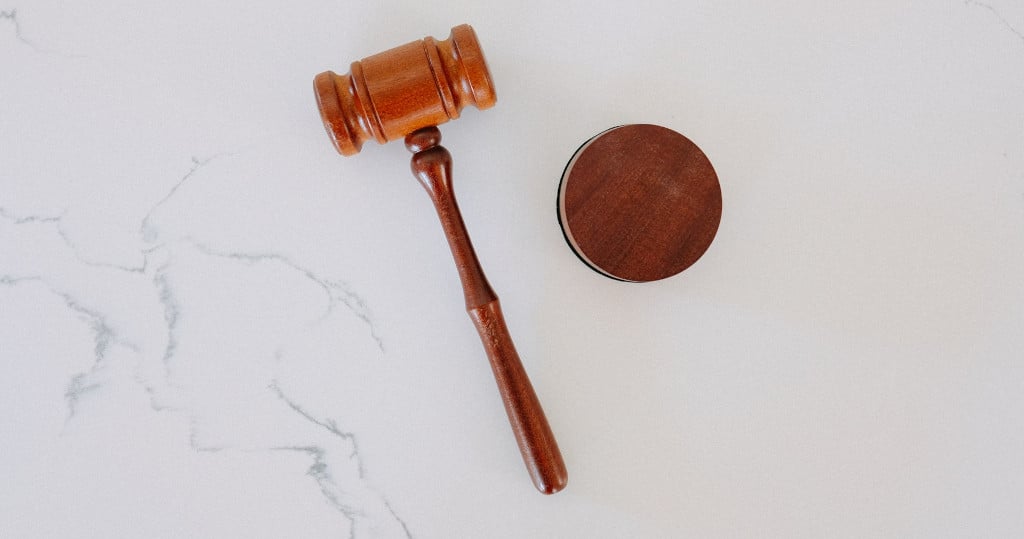
And if you’ve never been called upon to sit on a jury before, there are many things you should know about how it works to ensure that justice is done fairly and efficiently. Most people don’t realize just how important this right is until they’ve had the opportunity to exercise it.
For example, when someone is being prosecuted for domestic violence or rape charges, and there are no witnesses present except for those involved in the crime itself (if any at all), it might seem like nothing will go beyond what each party says happened.
The Constitutional Right to a Trial by Jury
The Constitution guarantees the right to a jury trial, one of the most important rights we have as Americans. It is guaranteed in all criminal cases and civil cases involving monetary damages.
A jury consists of 12 people chosen at random from citizens living in the county where your case will be tried. They listen to evidence and arguments presented by both sides, then decide whether you are guilty or not based on their collective judgment about whether the accused did what is alleged or whether there was any evidence suggesting someone else was responsible. That’s why it’s called “a trial by jury,” not “a trial by judge.”
How Does a Jury Trial Work in the United States of America?
In the United States of America, a jury trial is a proceeding in which 12 people are selected to listen to the evidence presented by both the defense and the prosecution in a criminal or civil case and then render a verdict.

The defendant has the right to a jury trial in criminal and civil cases, although this right is not guaranteed in every case. If the defendant waives their right to a jury trial, a judge will decide the case.
To be selected for jury duty, citizens must be of legal age (18 years old in most states), have no felony convictions, and be able to understand English. Once selected, jury members must take an oath to remain impartial and render a verdict based solely on the evidence presented during the trial.
If the jury is unable to reach a unanimous verdict, then it is said to be “hung,” and a mistrial will be declared. In some cases, particularly criminal cases, the prosecutor may choose to re-try the case with a new jury if the jury is hung.
What Are the Benefits of a Jury Trial?
There are several benefits to having a jury trial:
- Juries provide an important check on government power.
- Juries promote public confidence in the legal system and the fairness of the outcomes of criminal cases.
- Juries serve as a safeguard against judicial error.
- Juries provide a forum for community involvement in the administration of justice.

What Are the Drawbacks of a Jury Trial?
There are several potential drawbacks of jury trials.
- First, jury trials can be very expensive, both for the government and for the defendants. Trials by jury also tend to be longer than bench trials, which can add to the cost and inconvenience involved.
- Another downside of jury trials is that they can be unpredictable. Because juries are composed of everyday citizens who may not have any prior experience with the legal system, it can be difficult to predict how they will react to evidence or arguments presented in court. This unpredictability can sometimes lead to unfair or unjust outcomes.
- Finally, some people believe that jury trials allow for too much personal interpretation of the law, which can lead to inconsistent verdicts across different cases. Critics also argue that juries may be influenced by their biases or preferences rather than by the evidence presented in court.
How Does a Jury Trial Differ From a Bench Trial?
A jury trial, also known as a trial by jury, is a constitutional right in the United States of America. This type of trial allows a group of people, called the jury, to hear evidence and decide whether or not the defendant is guilty. The Sixth Amendment to the United States Constitution guarantees that a defendant in a criminal case has the right to a jury trial.
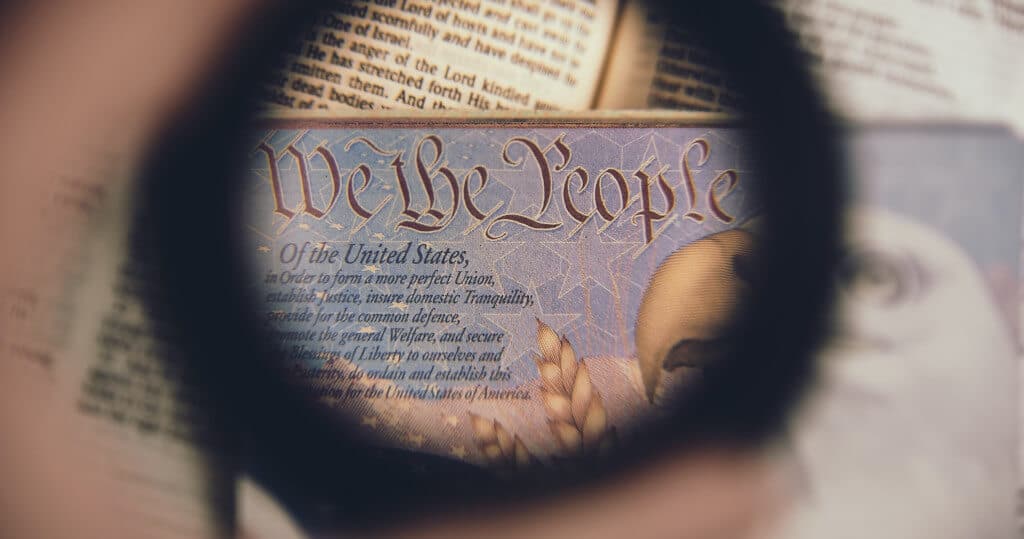
A bench trial, on the other hand, is a trial that is presided over by a judge instead of a jury. In a bench trial, the judge hears all of the evidence and decides whether or not the defendant is guilty.
Some people prefer bench trials because they believe judges are more experienced and better equipped to make fair decisions. However, others believe that jury trials are fairer because they allow for more democratic participation in the judicial process.
What Are Some Famous Jury Trials in American History?
- One of the most famous trials in American history is the Hinckley murder trial. John Hinckley, Jr. was accused of the attempted assassination of President Ronald Reagan. His conviction was overturned because the jury ruled him insane, which shocked many Americans. A poll by ABC News showed that 83% of Americans believed justice was not done in this case. Some people blame the infamous Hinckley verdict on the anti-Reagan bias that existed in the United States at the time.
- In 1989, Pamela Smart went on trial. She was accused of coercing an underage sex partner and plotting to kill her husband, Greggory Smart. The trial was so controversial that the New Hampshire television station even preempted daytime soap operas to air coverage of the trial. The verdict was not in her favor, but the case is still remembered for all its controversy.
- Two other notorious jury trials in the United States are the William Penn and the Nicola Sacco trial. These trials occurred in 1870. The case is a landmark in American history, as it demonstrates the power of juries. Even though they were both guilty, the jury failed to reach a unanimous decision. Although the case had no major flaws, the jury failed to reach a unanimous verdict. Despite the high stakes, Sacco and Vanzetti were ultimately executed.
- The Rosenberg trial helped accelerate the Cold War paranoia in the United States. Julius Rosenberg was a member of the American Communist Party. Anti-communist politicians viewed this as proof of left-wing subversion within the country’s borders. In addition, supporters of the Rosenbergs were painted as part of a growing communist movement. During this time, the Rosenbergs were among the few Americans to be executed for espionage.

Some of the most famous jury trials in American history resulted from high-profile cases. These trials reflected the social and political issues of the day and often had a profound impact far beyond the courtroom.
They addressed important issues of the day, such as the right to speak freely, the role of religion in society, the responsibility of war criminals, and the legal treatment of public figures. Many famous jury trials have received much media coverage.
How Has the Jury Trial System Changed Over Time in America?
Jury trials are a cornerstone of the American criminal justice system. They have their roots in English common law, and jury trials were brought to the American colonies by British settlers.
The right to a jury trial is enshrined in the Sixth Amendment to the U.S. Constitution, and jury trials are a staple of both federal and state criminal courts.
Jury trials have changed a great deal over time. In colonial America, juries were often composed of 12 men who were chosen from the community at large. These men had to be landowners and were generally wealthy and educated.
Today, juries are composed of ordinary citizens who are chosen at random from voter registration lists or other lists of potential jurors. Juries today can be as small as six people or as large as 12, depending on the jurisdiction.
The changing role of juries
The role of juries has also changed over time. In early America, juries were sometimes asked to render a verdict based on their knowledge of the case, even if that meant disregarding the law.
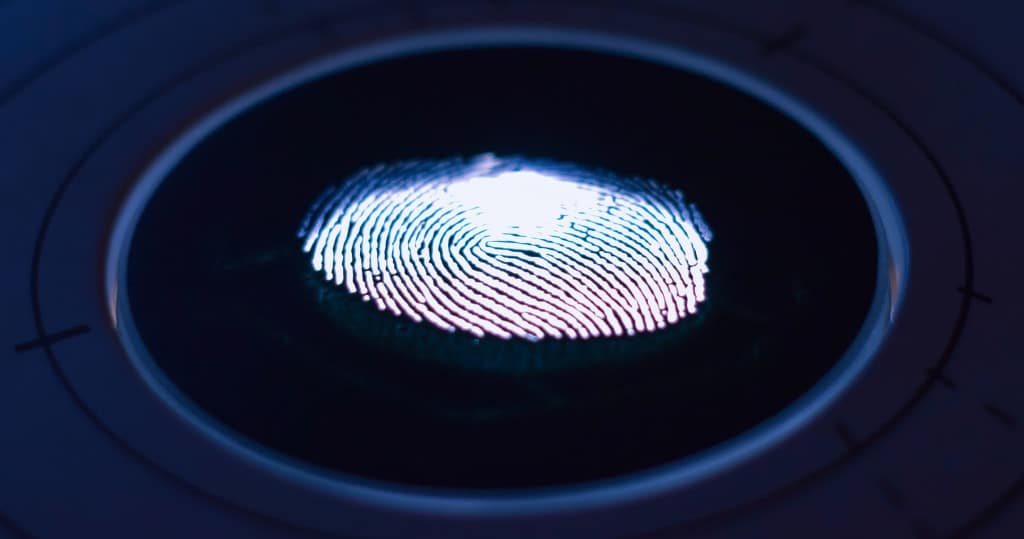
Presently, juries are required to render a verdict based solely on the evidence presented to them in open court and on the judge’s instructions.
The changes in a jury trial over time reflect changing attitudes toward democracy, equality, and fairness in American society.
What Challenges Does the Jury Trial System Face in America Today?
The jury trial system in America today faces many challenges.
- One of the biggest challenges is finding citizens willing to serve on juries is becoming increasingly difficult. This is partly because jury trials can be lengthy and often require people to take time off work or other commitments. As a result, many people are simply unable or unwilling to serve as a juror.
- Another challenge facing the jury trial system and the jury selection process is that it is often criticized as overly complicated and time-consuming. This is especially true in cases with a large amount of evidence to sift through.
- Additionally, some jurors may feel overwhelmed by the responsibility of having to make a decision that could potentially have a major impact on someone’s life.
- Finally, the jury trial system is also facing challenges due to the increasing use of plea bargains. In many cases, defendants are offered plea bargains by prosecutors in exchange for pleading guilty to a lesser charge. This practice can often result in fewer jury trials taking place, as defendants are more likely to accept a plea bargain than go through with a full trial.

How Long Does a Jury Trial Last?
It’s difficult to say in a precise way how long a jury trial will last. It all depends on the case and its complexity. Some cases can be decided in as little as one day, while others may take weeks or months. The trial length will also depend on when you are scheduled for your trial (i.e., if there is an opening date versus a “continued” date).
If you have gone through the pretrial process with no motions filed, then it isn’t uncommon for a criminal trial to last from one to three days at most.
On the other hand, if multiple motions need to be heard by the court before an opening statement, presentation of evidence, and closing argument, then it could take several weeks before either side has rested their case and presented their closing argument before being ready for deliberation by the jury.
When Can You Be Excluded From Serving on a Jury?
If you meet these criteria, there are still some things that could prevent you from jury service.
- You can be excluded from serving on a jury if your religious beliefs would make it impossible for you to follow the law as required by the legal system. If this applies to you and your beliefs conflict with those of the court or with the laws of this country, then the judge will honor those beliefs and excuse you from serving on a jury.
- Suppose someone is physically unable to serve as a juror due to an illness or disability (and they were not aware of their condition before they were summoned). In that case, they should let their bailiff know so that he/she can arrange for transportation home safely. Otherwise, he/she may be held in contempt of court if left without supervision after being dismissed from duty.
Importance of Jury Duty
By working together, we can ensure the justice system runs smoothly. You should always make sure you know what’s going on in the courtroom and why it’s important for everyone involved. A jury trial is an opportunity for citizens like you to shape our society through your decision-making process!
